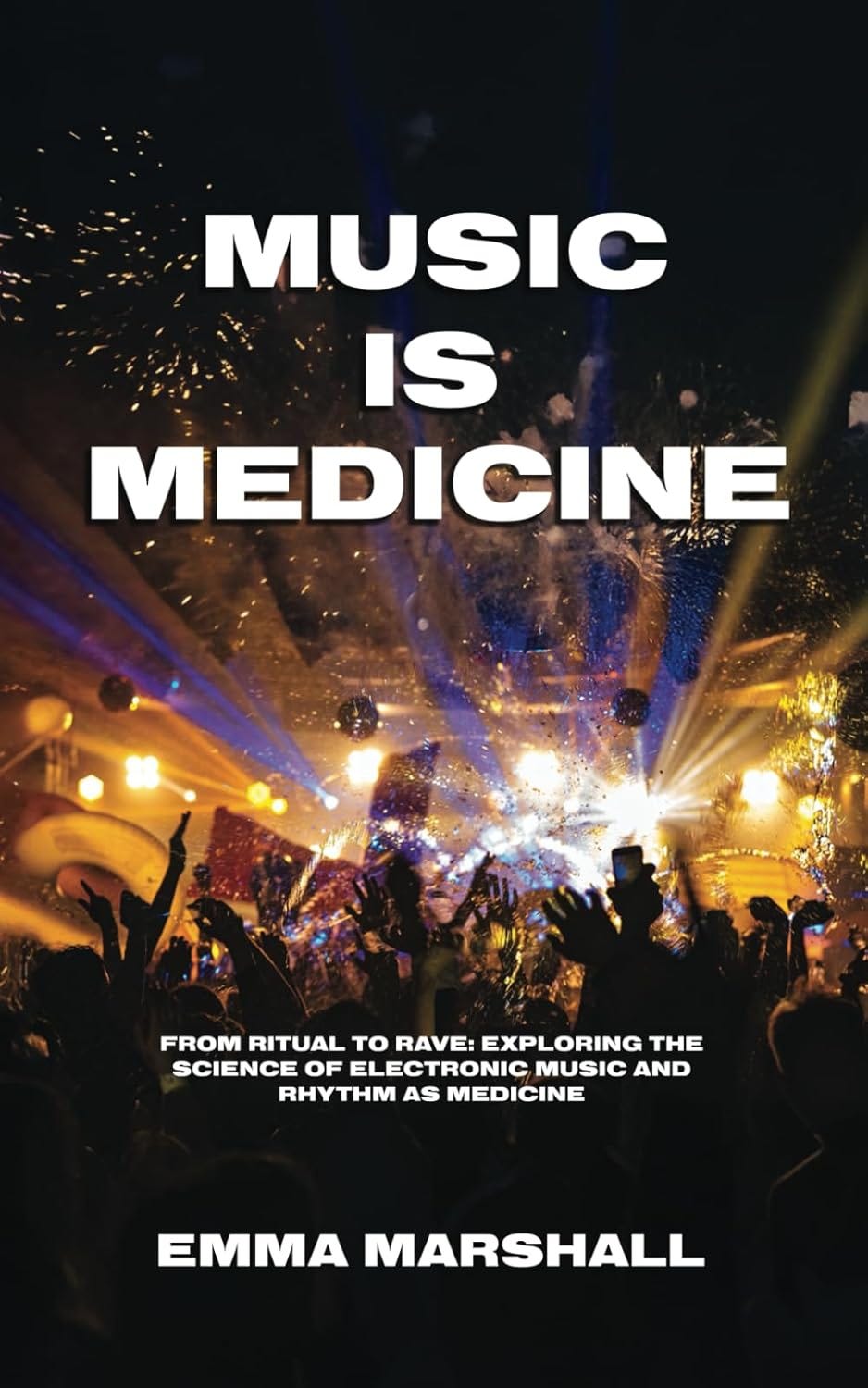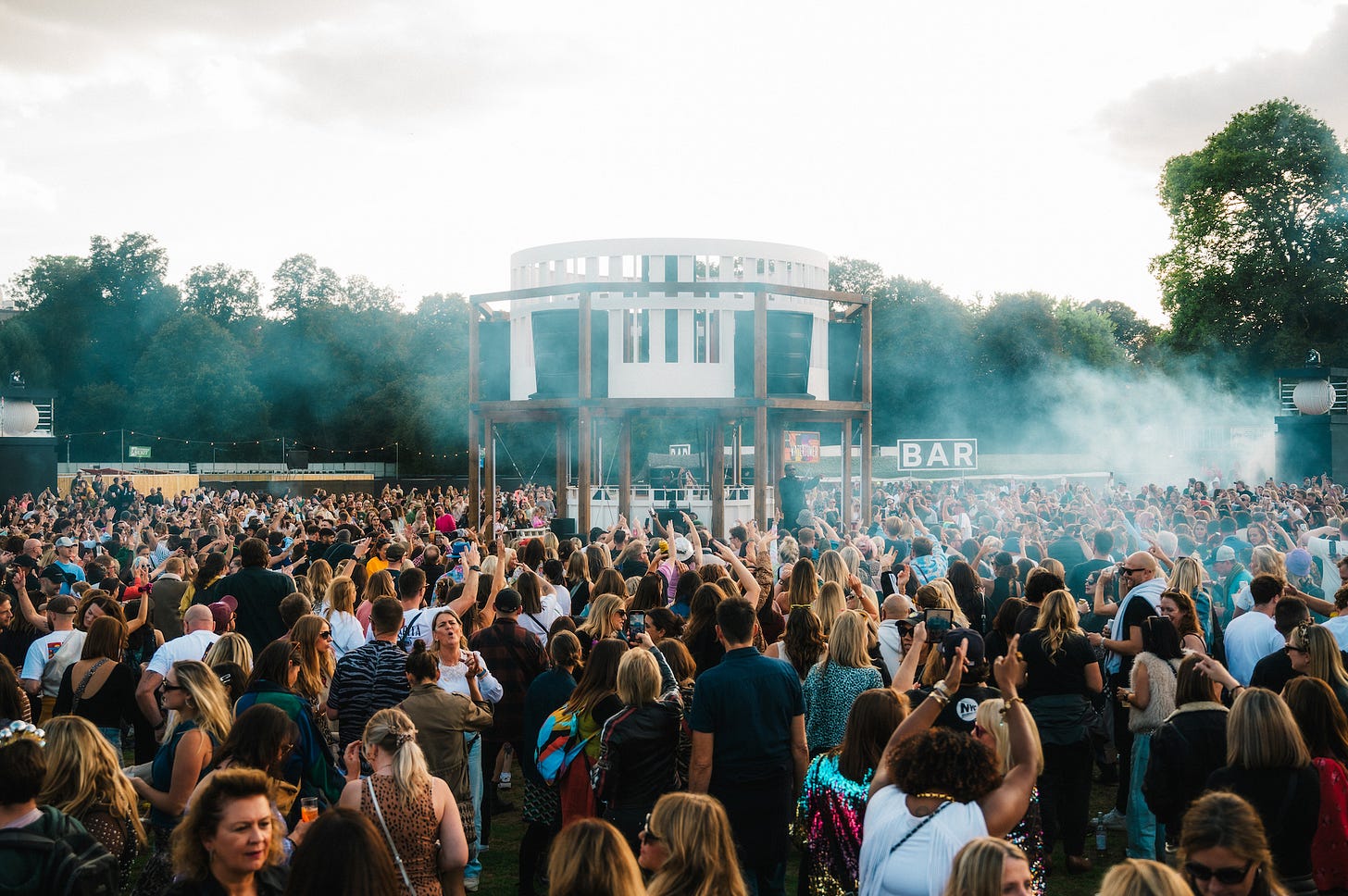Music is Medicine: How dancing can transform your mental health (a workshop)
Monday 2nd Jun: Meet Emma Marshall, founder of the Movement is Medicine method (+ 5 ways to get your dance on, whatever your age)
Hello everybody 👋
If you know me, you know I love a dance.
Nothing formal - the last dance class I tried was ‘Hip Hop in Heels’ at a Norwich dance school, and I think everyone there would agree that any kind of hip hop is not my zone of genius - but I love the opportunity to move to music.
Whether that’s in an Ibizan super club, a field, a dive bar, a beach bar, at a wedding, or - most often - in my kitchen.
I’m happy dancing solo or with friends. And to most types of music (but electronic, house and disco are my favourites).
I used to think I loved dancing because I loved drinking.
Because, until a couple of years ago, the dancing was always accompanied by a drink (or five).
Because booze was my sidekick for pretty much everything I did in life.
And without my sidekick I would’ve been WAY too self-conscious to actually be myself and dance in front of people.
But over the past 10 years as I’ve been on this journey of self-discovery, got to know and like myself, and completed various sober stints (and especially since my full year of sobriety in 2024) I’ve given myself chance to try everything sober, often more than once, and dancing is one thing that keeps coming up as something I always LOVE to do, and that always makes me feel great.
Especially when I do it sober.
The self-consciousness is still there, sometimes. (And Red Bull, sunglasses and an emotional support baseball cap are my friends on these occasions).
But having now been to sober raves around the country, and been the only sober person at very much non-sober day raves and nightclubs and house parties and beach weddings and festivals around the world, I can confirm that movement is my medicine.
I know this because I feel it. In myself. And I also see it in my friends when we get together and dance.
But there’s also a lot of science behind how music and movement can support our nervous systems and mental health. Neuroscience shows us that music can influence our brain chemistry by releasing dopamine and reducing cortisol. It can reduce anxiety, blood pressure and pain, while also improving mood, memory, and sleep quality. And that’s before we’ve even introduced movement to the equation.
If you’re keen to know more, a quick Google will bring up thousands of articles on music and movement as medicine. OR - much better - why not come to our author event on Monday with the expert, Emma Marshall PhD, and learn/feel the power of music to change your state?
is an amazing women, someone who has used music and movement to heal herself from chronic pain and autoimmune conditions that had the medical profession stumped, and who is now dedicating her life to educating people about music as medicine on a global scale.
She is a TED talker, a teacher, an entrepreneur and the founder/creator of the ‘Movement is Medicine’ method, combining music, movement and science to promote health, connection and well-being.
And her MIM dance events were the one of the highlights of my year last year, so now she has a book out - Music is Medicine - exploring the science and healing power of music and rhythm, I’m so happy I get to introduce her to you guys.
(Her book and work are also a brilliant complement to our latest Club theme of healthy relationships, because the only thing better than dancing to great music, is dancing to great music with great humans).
🖥️ Emma will be joining us online LIVE on Monday (2nd June) to celebrate the launch of her new book, talk us through the science of music and guide us through a couple of simple music & movement based practices designed to regulate our nervous systems.
(Reminder that Paid Subscribers get access to all of our online author events and book clubs, joining details to follow in Monday’s Book Club email).
And please don’t panic if you’re not a raver, or are out of practise, the exercises we’ll be doing are suitable for ALL levels, and - as you’ll learn - music has the power to heal on so many levels that you don’t need to love the dance floor to benefit.
See you on screen?
Toni
💛
🪩 5 ways to get your dance on, whatever your age :
NB I appreciate that we are a global community and not all of these events will suit everyone, so if you have other suggestions for dance parties where you live then PLEASE SHARE in the Comments…
FRAME classes (online/offline London) > The digital FRAME studio 100% saved my life in lockdown. I love the variety of classes, from Disco Yoga to Tina Turner inspired Dance Cardio, and the fun party vibes (and outfits).
The Class dance fitness (online/offline NYC/LA) > Much more than a dance class, The Class uses repetitive music and movement to deliver a cathartic and emotional mind-body experience that I wish I could share with everyone I know (free 2-week trial available).
Day Fever daytime disco (locations around the UK) > Perfect for anyone who loves to dance but hates late nights and/or being surrounded by people their kids’ age. The music is 100% pure CHEESE 🧀, but most people on the dance floor are so happy to be out they don’t care.
Movement is Medicine healing dance event > Emma Marshall’s signature daytime event starts with a seated, guided meditation and finishes as a full on rave. Amazing DJs & musicians. Cool venues. Sober vibes. One for the old school ravers.
Before Midnight daytime festival > A club ‘night’ for the early crowd, created and hosted by DJ (and Substacker!) . Running 2pm-10pm, the next event is in West London on 12th September and I’ve got my tickets so LMK if you’re heading down!









